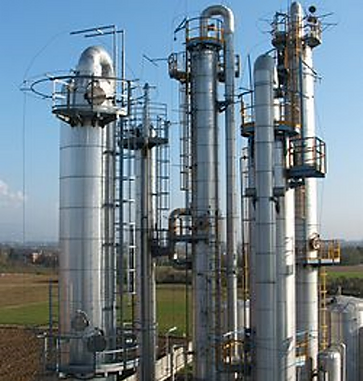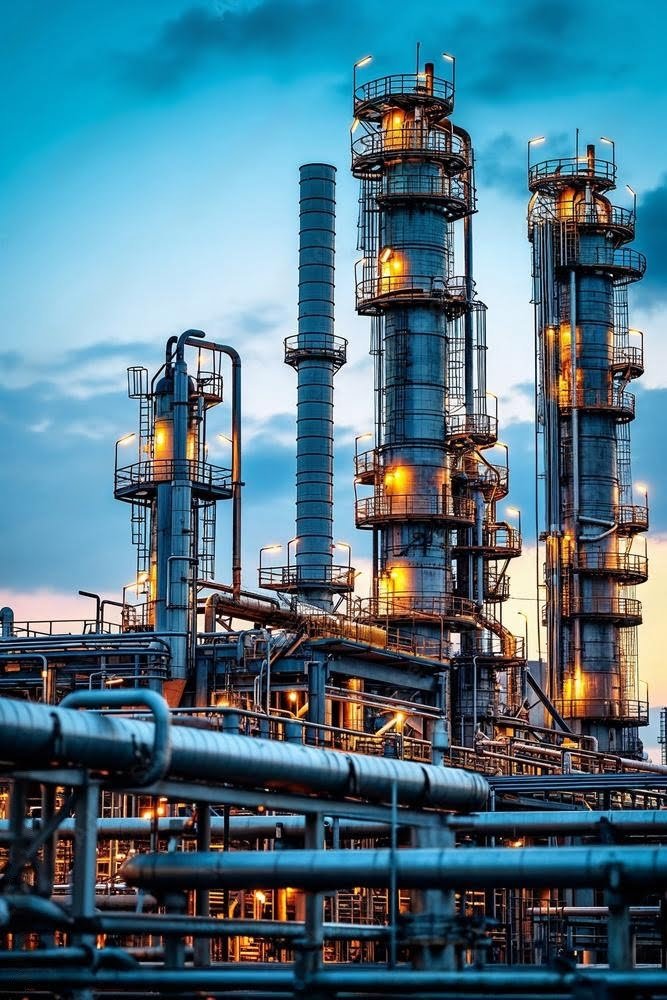Distillation Columns: Enhancing Separation Efficiency in Chemical Production
In the realm of chemical production processes, the role of distillation columns cannot be overstated. These towering structures play a pivotal role in separating mixtures and purifying chemicals. With advancements in distillation column designs, the separation efficiency in chemical production has witnessed a remarkable boost. In this article, we will delve into the intricacies of how these advanced designs enhance separation efficiency, particularly in the context of sterilization processes within the pharmaceutical industry.

The Significance of Distillation Columns in Chemical Production
Distillation columns are indispensable in chemical production as they facilitate the separation of different components within a mixture based on their varying boiling points. By utilizing the principle of vapor-liquid equilibrium, distillation columns enable the extraction of desired chemicals with high purity levels. This is especially crucial in industries such as pharmaceuticals, where the quality and purity of chemicals directly impact the efficacy and safety of the final products.
Enhancing Separation Efficiency through Advanced Distillation Column Designs
1. Optimal Tray Designs
One of the key factors influencing separation efficiency is the design of trays within the distillation column. Advanced tray designs, such as sieve trays and structured packing, offer improved vapor-liquid contact and enhanced mass transfer. These designs minimize the chances of channeling and flooding, leading to better separation efficiency and higher product yields.
2. Efficient Heat Integration
Efficient heat integration is another aspect that contributes to enhanced separation efficiency. By incorporating heat exchangers and condensers within the distillation column, the energy requirements for the separation process can be significantly reduced. This not only leads to cost savings but also improves the overall sustainability of the chemical production process.
3. Advanced Control Systems
The implementation of advanced control systems in distillation columns has revolutionized separation efficiency. By utilizing real-time data and sophisticated algorithms, these systems optimize operating conditions, such as reflux ratios and feed rates, to achieve maximum separation efficiency. This level of automation minimizes human error and ensures consistent and reliable separation performance.
4. Innovative Column Internals
In recent years, the development of innovative column internals has played a crucial role in enhancing separation efficiency. Structured packings, for instance, offer increased surface area and improved mass transfer, resulting in higher separation efficiency. Additionally, the use of specialized internals, such as liquid distributors and redistributors, helps to achieve uniform liquid distribution across the column, further improving separation performance.
Distillation Columns in Sterilization Processes
When it comes to sterilization in the pharmaceutical industry, distillation columns find application in the form of autoclaves. Autoclaves utilize steam distillation to achieve sterilization of equipment, containers, and pharmaceutical products. The advanced distillation column designs discussed earlier also apply to autoclaves, ensuring efficient separation of contaminants and achieving the desired level of sterilization.
In conclusion, advanced distillation column designs have revolutionized separation efficiency in chemical production processes. By incorporating optimal tray designs, efficient heat integration, advanced control systems, and innovative column internals, the separation of mixtures has become more efficient and cost-effective. In the context of sterilization processes in the pharmaceutical industry, distillation columns, in the form of autoclaves, play a crucial role in achieving the desired level of sterilization. As the field of chemical production continues to evolve, further advancements in distillation column designs are expected, leading to even greater separation efficiency and improved product quality.
Learn More
For more information on our sustainable practices and equipment offerings, visit our pages on Reactors and Autoclaves, Process Vessel and Tanks, Hydrogenators, Pilot Plant Systems, Distillation Columns, Heat Exchangers and Condensers, and Large Size Pipe and Pipe Fittings.
Check out this Embracing Sustainability: The Eco-Friendly Applications of Exotic Metals
Check out this: Embracing Sustainability: The Eco-Friendly Applications of Exotic Metals
Check out this: The Importance of Material Selection in Chemical Equipment Manufacturing
Check out this: Pioneering the Future of Mining: Extracting Exotic Metals Sustainably
Check out this: The Role of High-Quality Reactors in Pharmaceutical Manufacturing
Check out this: The Future of Exotic Metals in Emerging Applications and Technological Advancements
Check out this: Ensuring Reliability: The Critical Role of Quality Assurance in Large Size Pipe and Pipe Fittings
Check out this: Working with Exotic Metals: Fabrication Techniques and Safety Tips

